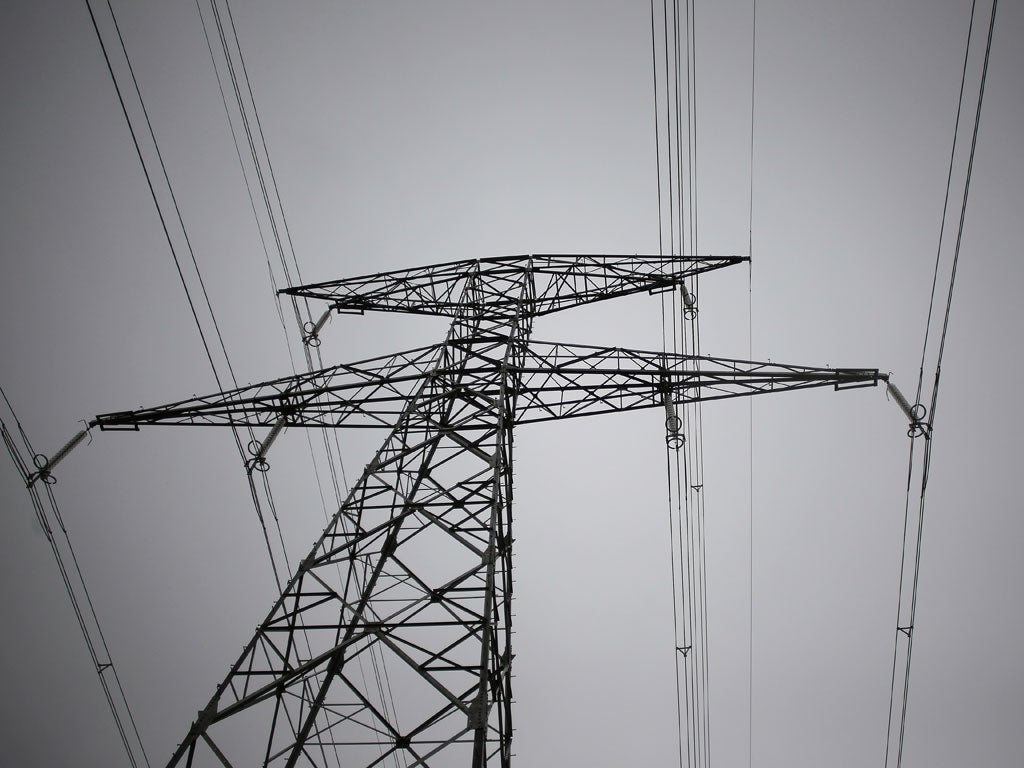Electricity price-rise pain may be worse than expected
Ofgem warns of power outages within years in face of dwindling spare capacity

Britain could be in for a higher jump in electricity prices than previously thought after the energy regulator warned yesterday that the country faces substantial power shortages within three years.
Speaking after Ofgem said spare electricity-generation capacity, known as the margin, is set to tumble from 14 per cent now to just 4 per cent over the winter of 2015/2016, Consumer Focus warned that this would put further pressure on prices.
"Narrower margins mean the risks of outages are higher, and scarcity of energy could also feed into possible price increases in future. Consumers need protection from price spikes as well as power cuts," said Audrey Gallacher, Consumer Focus director of energy.
Ofgem conceded that falling domestic generation would make Britain increasingly reliant on imported gas, putting further upward pressure on prices. The average dual-fuel gas and electricity bill is currently at a record high of about £1,300 a year, and had been forecast to rise substantially in the coming years – even before yesterday's stark warning.
"There will be a significant reduction in electricity supplies from coal and oil plants over the period [to 2015], primarily driven by closures required by European environmental legislation," an Ofgem spokesman warned. "The high level of spare capacity in the electricity market is set to end quite rapidly over the next few years."
Nine UK-based coal and oil fired plants with a combined generating capacity of 11.5 gigawatts are due to close by 2015, of which four are expected to cease generation next year. Energy UK, the industry body, said Ofgem was right to highlight the challenges it faces in the coming years.
"We must secure over £150bn of investment in the UK to replace aging power stations and infrastructure, keep the lights on and meet our carbon targets — all while making sure bills are affordable for the millions of homes and businesses," said Angela Knight, Energy UK's chief executive.
Meanwhile, the trade union Prospect, whose members include 21,000 staff in nuclear decommissioning and energy supply, called for government action to avert power shortages.
"This report highlights how imperative it is for the government to act now and introduce electricity market reform that ensures the programme of new nuclear build and other vital energy infrastructure projects, such as carbon capture and storage, are attractive enough to secure the long-term investment they require," said Prospect general secretary-designate Mike Clancy.
Energy Secretary Ed Davey said the government would respond to Ofgem's report by the end of the year.
"Security of electricity supply is of critical importance to the health of the economy and the smooth functioning of our daily lives," Mr Davey said, adding that Britain's energy industry faced "unprecedented challenges".
The government is in the midst of its electricity market reform (ERM), which is designed to support investors in new low-carbon electricity such as nuclear and renewable generation.
The support is expected to come through contracts for difference (CfDs) – essentially a long-term price contract for the electricity. However, the government has yet to decide how much these will be worth, making it difficult for investors in new plants to determine their economic viability.
Subscribe to Independent Premium to bookmark this article
Want to bookmark your favourite articles and stories to read or reference later? Start your Independent Premium subscription today.

Join our commenting forum
Join thought-provoking conversations, follow other Independent readers and see their replies